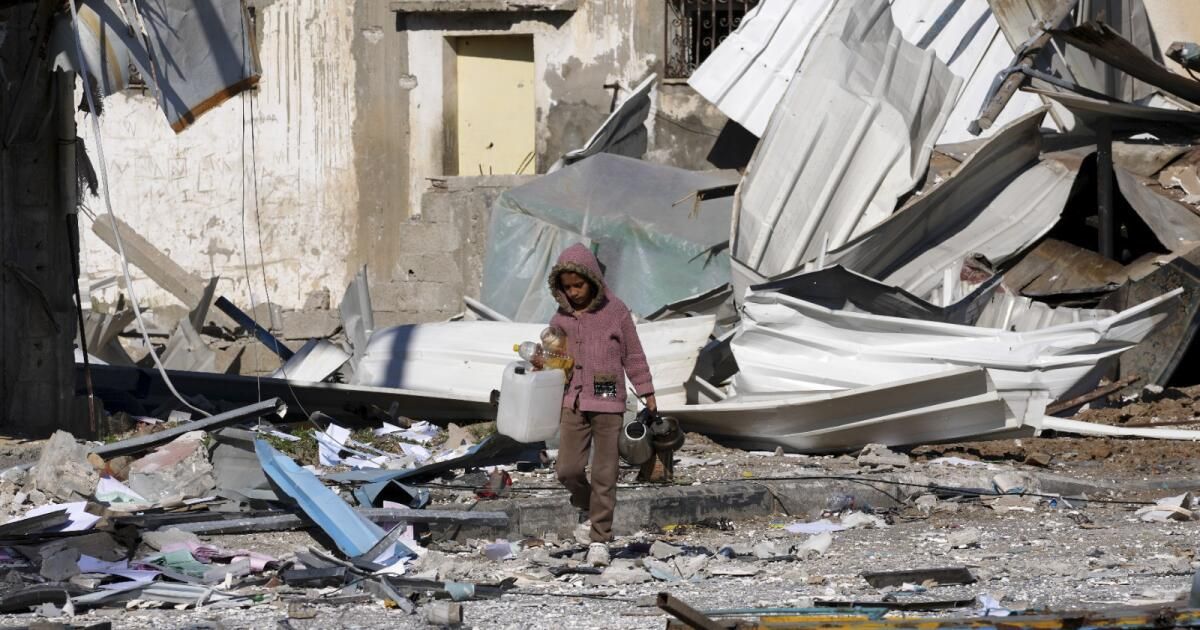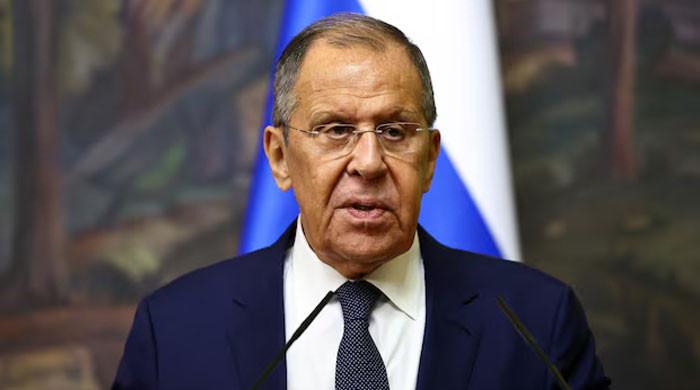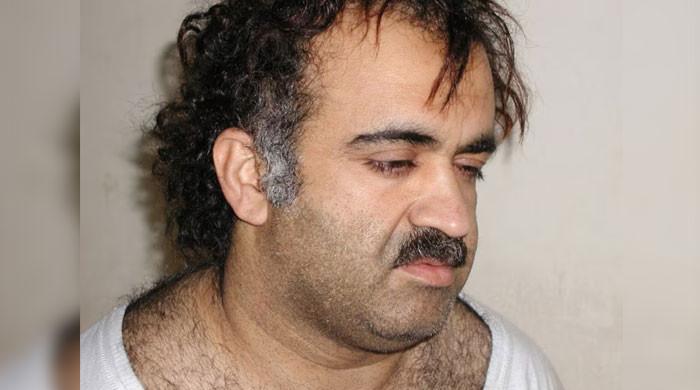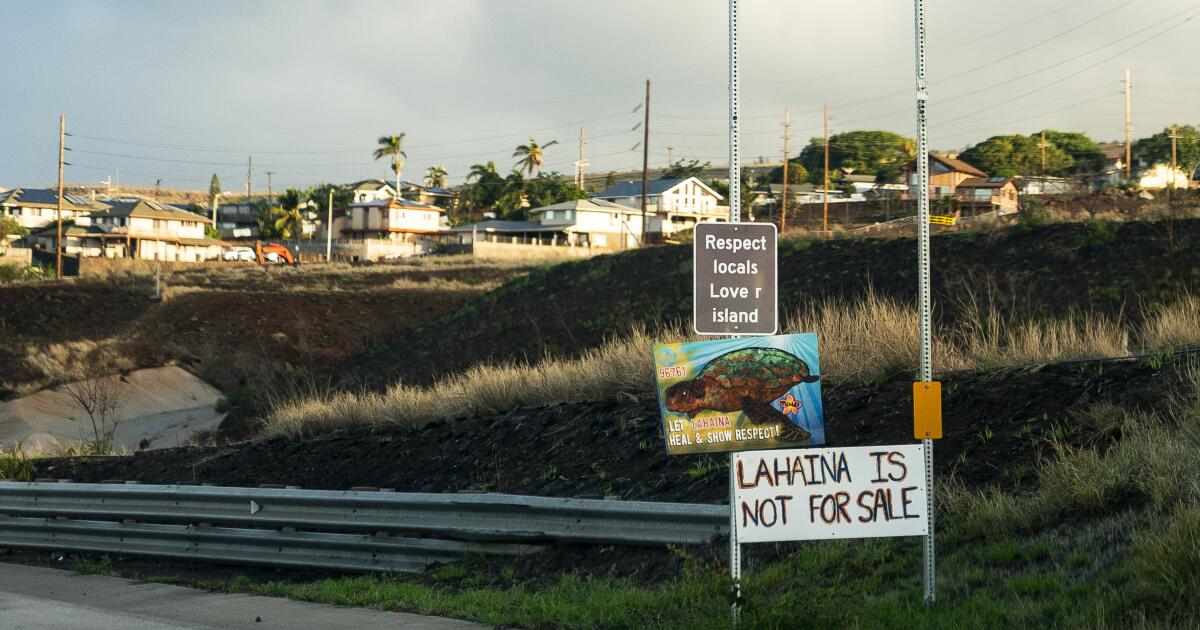The war in Gaza is mutilating minds and bodies.
The growing mental health crisis in the small coastal enclave is overshadowed by the scale of death and destruction caused by more than three months of Israeli bombing. But many experts believe the psychological damage may be one of the war's most lasting legacies.
According to Palestinian health officials, more than 25,000 people have died in Gaza. Most of the population of 2.3 million is displaced, the United Nations says. More than half of all structures in Gaza (schools, homes, universities) are damaged or in ruins, according to satellite images.
Palestinians flee Khan Yunis during an Israeli ground and air offensive in the Gaza Strip on January 22.
(Bashar Taleb / Associated Press)
But the full weight of long-term trauma, especially among the youngest, likely won't become clear until the fighting stops, say those at the center of Gaza's decades-long struggle to build a mental health care system. .
“The psychological wounds will remain for a long time after this catastrophe,” said Dr. Samah Jabr, head of mental health services at the Palestinian Health Ministry in Ramallah, the administrative capital of the West Bank. “And they will be passed down from generation to generation.”
There are so many children in Gaza whose entire families have been killed that hospitals classify them with the abbreviation “WCNSF,” which means “injured child, no surviving family.”
Those around Dareen Anas Al Baya, 10, hospitalized in Deir al Balah, central Gaza, encourage her to use colored pencils to express her feelings even when she doesn't feel able to talk to anyone.
“I draw every day,” said the girl, whose father and mother died in a bombing that left her with serious injuries to her legs, but alive, along with one of her brothers. Dozens of other members of the girl's immediate and extended family who were sheltering together in the house were also killed.
One of his uncles survived and was being treated in Turkey, medical staff said.
“I'm hoping maybe he can lead us to him,” Dareen said tentatively.
Even among children left physically unharmed in a war that has killed about 12,000 of them and wounded more than twice as many, the psychological effects are pervasive, those working on the ground say.
“In every store we inspect, we find children compulsively sucking their fingers, wetting the bed, suffering from speech difficulties, losing their appetite, having nightmares and not being able to sleep,” said Dr. Arafat Abu Mashayikh, head of the health department. mental hospital at Al Aqsa Martyrs Hospital in Deir al Balah.
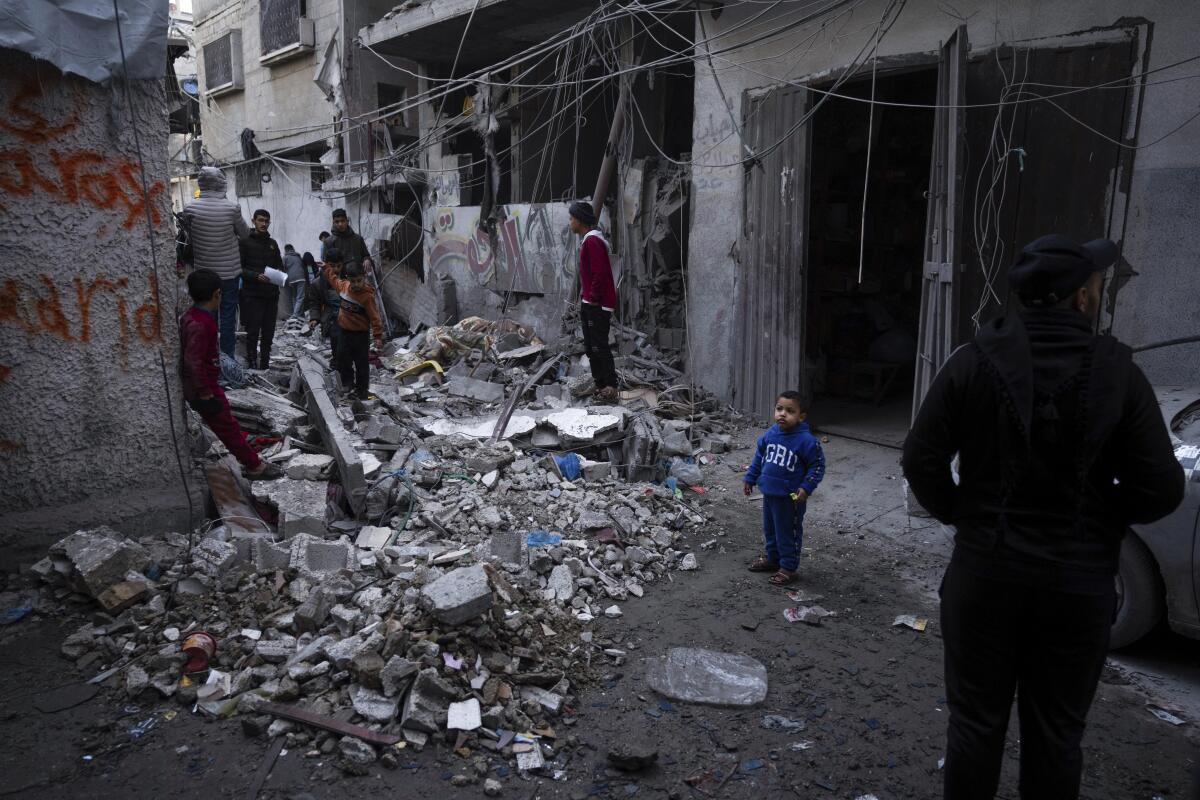
Palestinians assess the damage caused by an Israeli attack on Rafah in the southern Gaza Strip on January 17.
(Fatima Shbair / Associated Press)
Adolescents are another vulnerable group, and the current war (one of several that Gaza's youth have already experienced) comes at a time when they are developing convictions and social identity.
“Because of this experience, their view of the world and themselves will be distorted,” said Jabr, director of Palestinian mental health services, who is also a clinical psychologist.
Adults are suffering too. Before the war, Gaza had a single inpatient psychiatric hospital and it only had 40 beds. The bombings knocked out the facility early in the conflict, Jabr said, leaving families to care for relatives with serious mental health problems even as they frantically move from place to place trying to find safety.
Of the six community mental health centers in Gaza that had distributed psychiatric medications, five were forced to close their doors in the first weeks of the war, health officials said. And telemedicine counseling appointments, a lifeline for those living in remote areas, quickly fell victim to frequent communications outages.
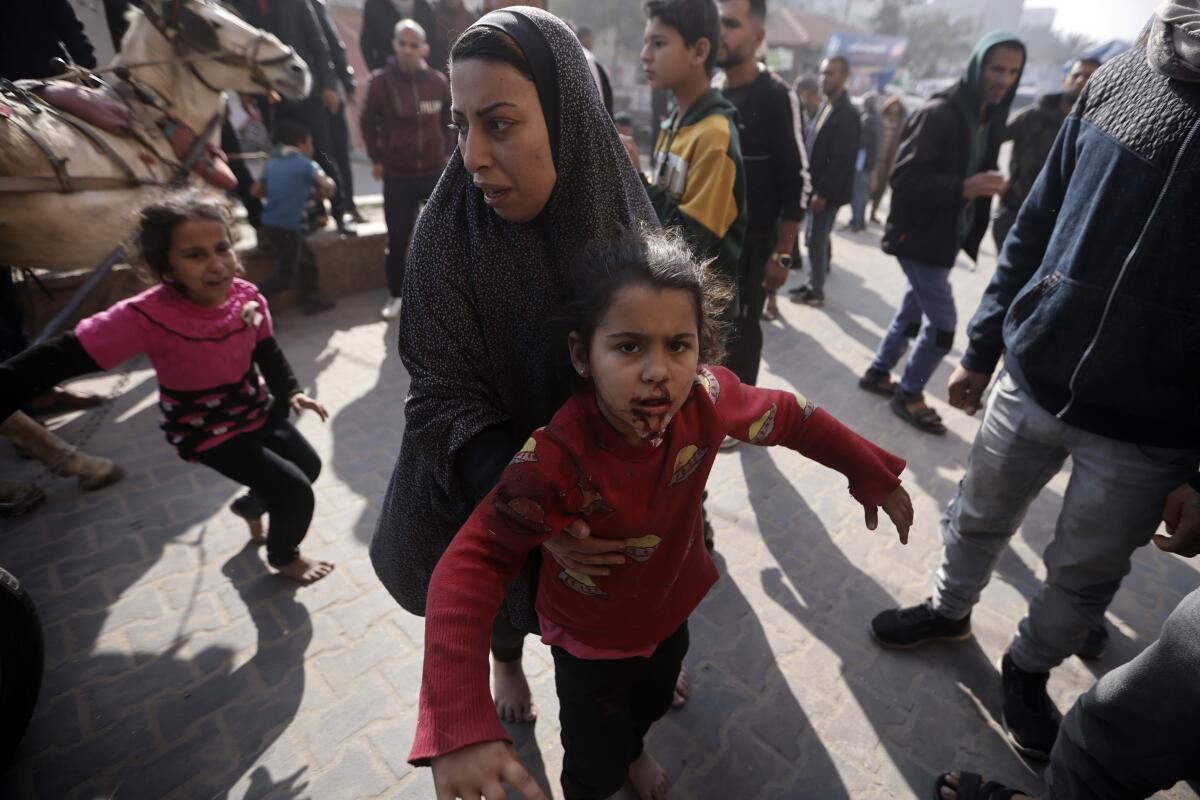
Palestinians injured during the Israeli bombardment of the Gaza Strip are taken to Nasser Hospital in Khan Yunis on January 22, 2024.
(Mohammed Dahman / Associated Press)
Before the war, years of efforts by mental health professionals and community workers in the Palestinian territories had begun to remove some of the social stigma associated with mental illness. Traditionally, even conditions like anxiety and depression made sufferers and those closest to them feel isolated and ashamed, doctors said.
The war has leveled attitudes about mental health, some professionals said, because virtually everyone finds it difficult to cope with their circumstances and there is greater acceptance of mental struggles.
Still, many people, especially parents, feel the need to hide their distress as best they can. A widowed mother of seven named Hanan, displaced and living in a tent in central Gaza, said she was terrified by the bombing but she decided not to let her children see it.
“I always acted like I wasn't afraid; even if I screamed, I pretended to laugh,” said Hanan, 48. After the family took shelter at a school, she tried to calm her daughters with fabricated promises to a security officer that they would be safe there. Soon they had to flee again.
Sometimes, Hanan said, the pressure was too much to bear, and she would feign the need to visit her camp's squalid bathrooms just to have a few moments outside.
“I want to run, just get out of the store and run away,” he said. “I pretend I want to go to the bathroom so I can go for a walk at night.”
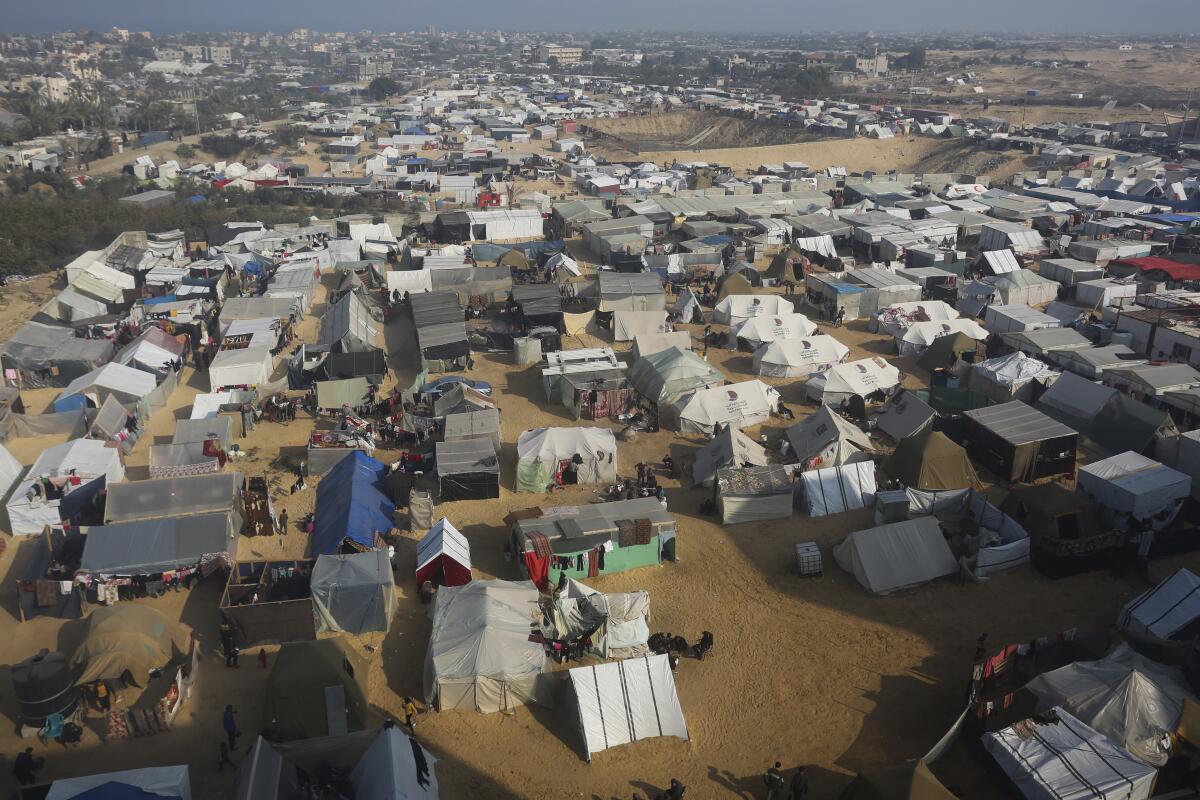
Displaced Palestinians gather at the makeshift Muwasi camp in the southern Gaza Strip.
(Hatem Ali / Associated Press)
Living in constant fear poses its own dangers, health experts said, because it is common for the ability to make decisions to be affected by extreme stress. In Gaza, getting through a single day requires ingenuity and planning: finding shelter, obtaining food, searching for clean water.
“In a war zone, the ability to survive can be greatly affected by a person's mental health status,” said Dr. Steve Sugden, U.S. Army Reserve colonel and psychiatrist, associate professor at the University of Utah. “For people in this state of mind, decisions are more reactionary, responding immediately to events rather than thinking things through.”
In Gaza, the number of people able to provide care and comfort to those suffering from mental disorders is decreasing, because they too are traumatized. In the context of a general collapse of the medical system, that loss may go unnoticed, but it is increasingly felt as the war drags on.
“Many in Gaza have been trained to provide psychological 'first aid': nurses, general practitioners, teachers,” Jabr said. “But now no one is truly unscathed by the loss of loved ones, homes or property, so the capacity to help is diminishing.”
For many in Gaza, stoicism is the only way forward, health professionals say. People may feel guilty all their lives after having to leave a loved one for dead under the rubble, but in the moment they may feel like there is nothing to say.
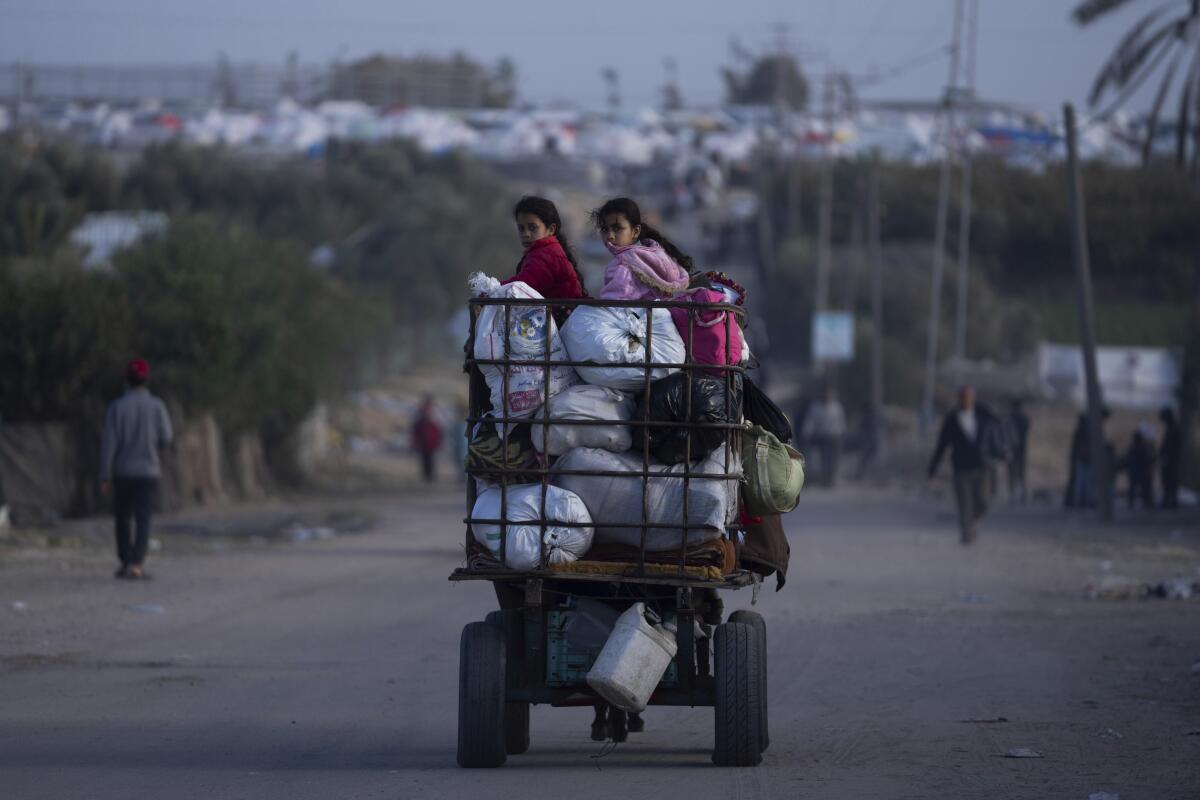
Palestinians who fled Khan Yunis arrive in Rafah, southern Gaza, on January 22, 2024.
(Fatima Shbair / Associated Press)
From Ramallah, Jabr maintains contact with colleagues in the mental health field as best he can. He can sometimes offer some practical advice, but there is one scenario that he finds especially difficult to deal with.
“That's when someone I know who has lost so much — their son has been murdered, their house is destroyed — insists on asking me how I'm doing, how I'm coping,” he said. “That's the most unbearable thing.”
The Times' special correspondent in Gaza cannot be identified for security reasons. Staff writer King contributed to this report from Jerusalem.

